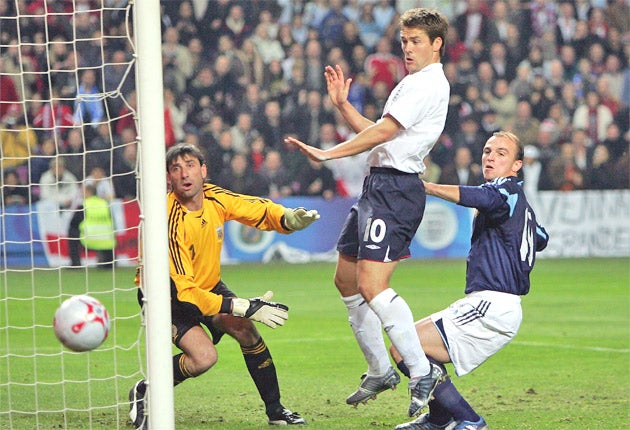Glenn Moore: Turning Rovers into an agent's shop window will be risky business
Kentaro has world-wide connections but its involvement at Ewood Park can easily backfire

There is nothing new about players being foisted on a manager, even Jose Mourinho has suffered in this way. Either currently, or recently, Chelsea, Manchester City, Tottenham, West Ham and Newcastle are among Premier League clubs where signings have been made at the instigation of an owner, chairman, chief executive or director of football. On the continent the practice is commonplace.
The club provides the players, the manager coaches them. A refinement of this looks to be the future at Liverpool. The manager will request a type, such as an attacking right-back, and Damien Comolli, the director of football strategy, will either present him with a shortlist, or simply deliver one. Sometimes it works, on other occasions it does not, as Rafael Benitez made clear when he left Valencia complaining, "I wanted a sofa and they bought me a lampshade."
However, what appears to be on the cards at Blackburn is another step entirely. Their buying policy, it is claimed, will be influenced by the client list of a major agent.
So far the Premier League chiefs profess themselves unconcerned by the close relationship between Kentaro, a Swiss sports rights agency, Sports Entertainment and Media Group (SEM), a players' management agency, and Blackburn's new owners, the Indian poultry magnates Venky's. However, they will be keeping an eye on the situation.
It has been suggested Kentaro might use Blackburn as a shop window, much as Kia Joorabchian did in parking Carlos Tevez and Javier Mascherano at West Ham. The big difference since then is that third-party ownership has been outlawed.
Whatever Kentaro's intentions they will have been carefully planned, as the company has quickly spread its influence way beyond the small Swiss town of Wil in which it is based. It began in 2003 when two Swiss, Philipp Grothe and Philippe Huber, decided to pool their experience and contacts in the sports rights market. They soon struck broadcast deals in boxing and football but did not come to attention in England until 2005 when they arranged the friendly against Argentina in Geneva. That launched a new niche industry, staging high-profile friendlies in neutral venues with the bulk of the income realised through TV rights.
Kentaro signed agreements with the Argentine and Brazilian FAs to sell their friendlies. London and Doha have become regular venues, England playing Brazil in the latter last year. However, home fans only see Brazil and Argentina play in competitive matches, and the schedules can appear to be against the teams' interests. Before the 2006 World Cup, Brazil's preparation included a match in sub-zero temperatures in Moscow and friendlies against Lucerne and New Zealand. Tickets were sold for training sessions. Before the 2010 World Cup, they played in Zimbabwe, on a poor pitch against weak opposition. Brazil lost in the quarter-finals in both competitions.
Kentaro has also sold TV rights for the Football Association (including England and the FA Cup) and several clubs including Arsenal, Chelsea, Liverpool and Manchester City, giving it a strong foothold in the UK. It agreed a "corporate partnership deal" with SEM in February last year – Kentaro already owned a Nordic agency. Its 60 staff include Jonathan Hill, previously commercial director at the FA. Emmanuel Petit, the ex-Arsenal and France midfielder, is a founding shareholder. Kentaro also provides television production, marketing and financial services. In short, Kentaro is a seriously influential and well-connected player in the football business. Quite what it will be doing at Blackburn is less obvious and Rovers fans will hope its influence proves less damaging than potentially similar ventures in Belgium and Brazil.
In 2001, Jean-Marc Guillou, founder of the successful ASEC Mimosas academy in Ivory Coast, took over Beveren. He used it as a shop window importing many Ivorians including Yaya Touré and Emmanuel Eboué. The team reached the Belgian Cup final, but of the starting XI 10 were Ivorian. After pressure from Fifa, and within Belgium, Guillou pulled out in 2007. The club were relegated soon after.
In 2004, Joorabchian bought the Brazilian club Corinthians through a company called Media Sports Investments. MSI embarked upon a transfer splash, including Tevez for a Brazilian record fee. Corinthians won the title, but most of the players belonged wholly or partly to MSI. When the relationship foundered in 2007 it emerged Corinthians only owned five of their squad. Six months later they were relegated.
Strict work-permit rules, and the ban on third-party ownership, means neither of these cases could be exactly replicated in the Premier League, but there is no rule to prevent Rovers exclusively signing SEM clients, or owners dictating transfer policy by phone from India or Switzerland. Former owner Jack Walker can never have imagined such consequences when he decided to put his hometown club back on the football map.
Subscribe to Independent Premium to bookmark this article
Want to bookmark your favourite articles and stories to read or reference later? Start your Independent Premium subscription today.

Join our commenting forum
Join thought-provoking conversations, follow other Independent readers and see their replies